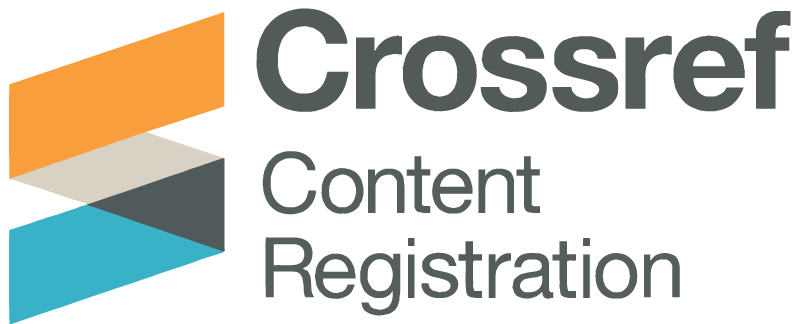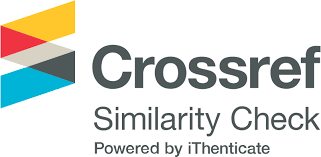تصورات طلاب اللغة الإنجليزية بالتعليم العالي في ليبيا لاستعمال صوتهم بالقاعة الدراسية
DOI:
https://doi.org/10.59743/jau.v34i2.388الكلمات المفتاحية:
صوت الطالب، قاعة الدراسة،، التعليم والتعلم، تعليم عاليالملخص
تبحث هذه الورقة في تصورات طلاب اللغة الانجليزية بالتعليم العالي في ليبيا لاستعمال صوتهم بالقاعة الدراسية، حيث تبنت الدراسة منهجية البحث النوعي واستهدفت اثنتي عشرة طالبة نظامية يدرسن بقسم اللغة الإنجليزية بكلية التربية في إحدى الجامعات الليبية، وكانت الغاية من الدراسة هي استكشاف آراء وتجارب الطلاب فيما يخص استعمال صوتهم بالقاعة الدراسية، واستخدمت لجمع البيانات طريقة المقابلة الشخصية شبه المركبة. من خلال تحليل البيانات تبين أن مجال صوت الطالب بالقاعة الدراسية ضيق جدا ولا يوجد تشجيع كاف ولا حتى سماح للطلاب بالمشاركة في اتخاذ القرارات التي تتعلق بقضاياهم التربوية. الفرصة الوحيدة التي تتاح لهم بأن يستعملوا صوتهم هي فيما يتعلق بإجراء الامتحانات وعمل الواجبات. في ضوء هذه النتائج تقترح الدراسة توفير بيئة أكثر استجابة للطلاب بالقاعة الدراسية بحيث يتمكنوا من المشاركة في اتخاذ القرارات التي تتعلق بقضاياهم التربوية ويلعبوا دورهم كاملا في تنفيذ المقرر الدراسي.
المراجع
Allison, E. (2015). Exploring Multiliteracies, Student voice, and Scientific Practices in two Elementary Classrooms. Degree Dissertation: The University of Alabama.
Basit, T. (2010). Conducting Research in Educational Context. London: Continuum.
BERA. (2011). Ethical Guidelines for Educational Research. London: BERA.
Bloom, B., and Crabtree, B. (2006). ‘The qualitative research interview’ Medical Education (40), pp.314-321. DOI: https://doi.org/10.1111/j.1365-2929.2006.02418.x
Brooman, S., Darwent, S. and Pimor, A. (2014).The student voice in higher education curriculum design: Is there value in listening? Liverpool John Moores University. DOI: https://doi.org/10.1080/14703297.2014.910128
Cook-Sather, A. (2006). 'Sound, presence and power: ‘Student Voice’ in Educational Research Reform.' Curriculum Inquiry, 36 (4), 359-390. DOI: https://doi.org/10.1111/j.1467-873X.2006.00363.x
Czerniawski, G., Garlick, S., Hudson, T., and Peters, P. (2009). Listening to Learners. London: University of East London.
Dawson, C. (2002). Introduction to Research Methods: A practical guide for anyone undertaking a research project. (4th ed). Oxford: How To Books.
Denzin, N. and Lincoln, Y. (2008). The landscape of qualitative research (3 ed.). Thousand. Oaks: Sage.
Hammersley, M. (2008). Questioning Qualitative Inquiry Critical Essays. Los Angeles: Sage. DOI: https://doi.org/10.4135/9780857024565
Hardina, D. (2004). 'Linking Citizen Participation to Empowerment Practice,' Journal of Community Practice, 11:4, 11-38. DOI: https://doi.org/10.1300/J125v11n04_02
Harmer, J. (2007). The Practice of English Language Teaching. (4th ed). Edinburgh: Longman.
Hennink, M., Hutter, I., and Bailey, A. (2011). Qualitative Research Methods. Thousand Oak, California: Sage Publications.
Kara, R. (1992). Language Learning and Teaching: Basic Premises. El-Fateh University Publishing.
Larsen-Freeman, D. (2000). Techniques and Principles in Language Teaching. (2nd edition). Oxford: Oxford University Press.
Mertler, C. (2009). Action Research: Teachers as Researchers in the Classroom. London: Sage.
Nunan, D. (1991). Language Teaching Methodology: A textbook for teachers. London: Phoenix.
Richardson, S. (2001). Positioning Student Voice in the Classroom: The Postmodern Era. Degree Dissertation: State University.
Shaffi, S. (2017). Student Voice in Higher Education: students’ and tutors’ perceptions of its utilisation and value. PhD Thesis: University of Central Lancashire.
Silverman, D. (2006). Interpreting Qualitative Data: Methods for Analysing Talk, Text and Interaction (3rd ed). London: Sage.
Tashakkori, A. and Teddlie, C. (1998). Mixed Methodology: Combining Qualitative and Quantitative Approaches. Applied Social Research Methods Series Volume 46. London: Sage.
Winter, R. (1998). ‘Finding a voice-thinking with others: a concept of action research’, Educational Action Research, 6:1, 53-68. DOI: https://doi.org/10.1080/09650799800200052
التنزيلات
منشور
كيفية الاقتباس
إصدار
القسم
الرخصة
الحقوق الفكرية (c) 2021 رجب علي اهويدي

هذا العمل مرخص بموجب Creative Commons Attribution 4.0 International License.
تتعلق الحقوق بنشر وتوزيع البحوث المنشورة في مجلة الجامعة الأسمرية، حيث توضح للمؤلفين الذين نشروا مقالاتهم في مجلة الجامعة الأسمرية، كيفية استخدام أو توزيع مقالاتهم، والاحتفاظ بجميع حقوقهم في المصنفات المنشورة، مثل (على سبيل المثال لا الحصر) الحقوق التالية:
- حقوق الطبع والنشر وحقوق الملكية الأخرى المتعلقة بالمقال المقدم، مثل حقوق براءات الاختراع.
- استخدام البحث المنشور في مجلة الجامعة الأسمرية في الأعمال المستقبلية الخاصة بالمؤلفين، بما في ذلك المحاضرات والكتب، والحق في إعادة إنتاج المقالات لأغراضهم الخاصة، والحق في الأرشفة الذاتية لمقالاتهم.
- الحق في الدخول في مقال منفصل، أو للتوزيع غير الحصري لمقالاتهم مع الإقرار بنشره الأولي في مجلة الجامعة الأسمرية.
الحقوق الفكرية: وفق الرخصة الدولية للأعمال الإبداعية المشاعة، النسخة 4.0.
بيان الخصوصية: سيتم استخدام الأسماء وعناوين البريد الإلكتروني التي تم إدخالها في موقع مجلة الجامعة الأسمرية للأغراض المذكورة فقط والتي استخدمت من أجلها.











